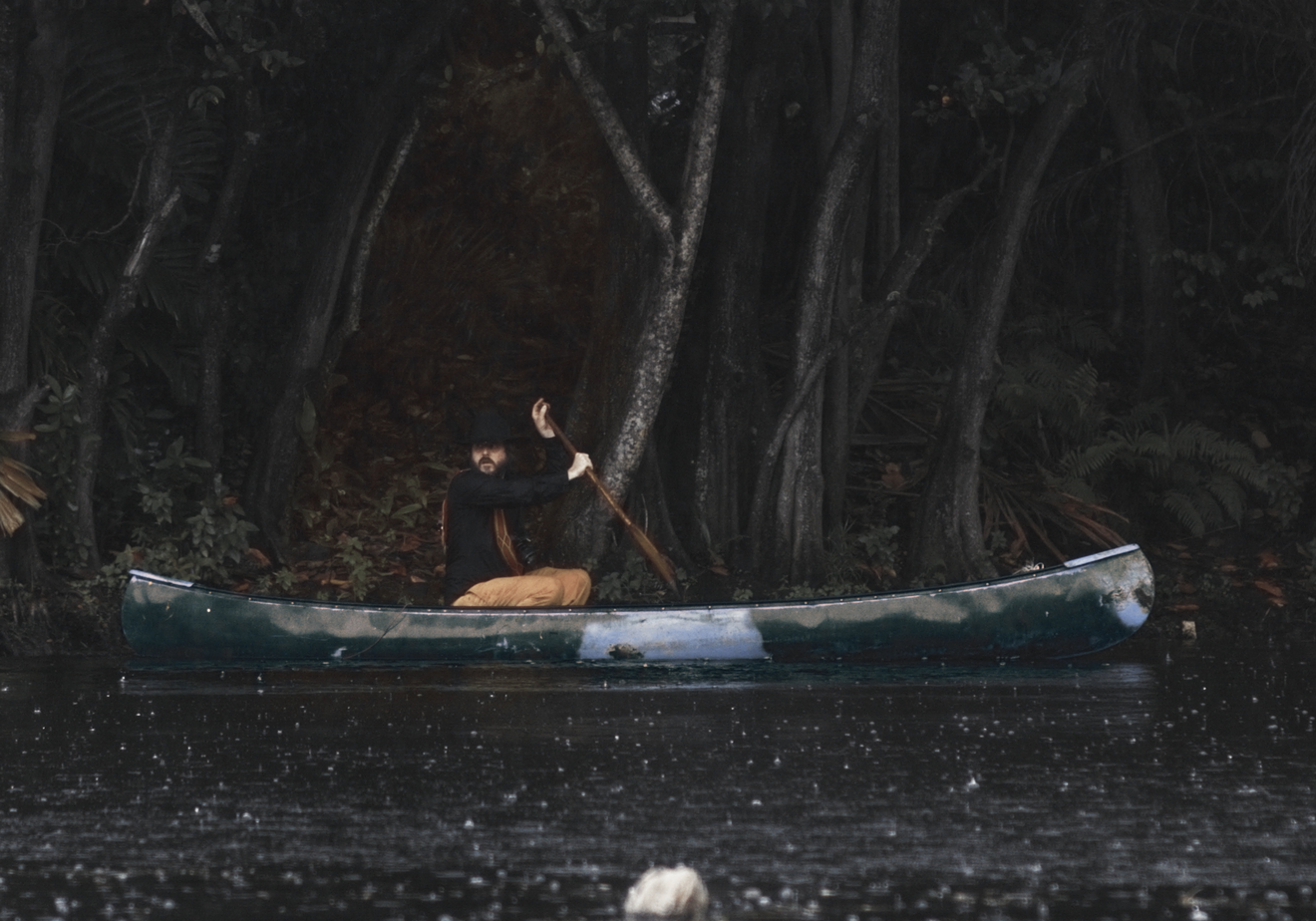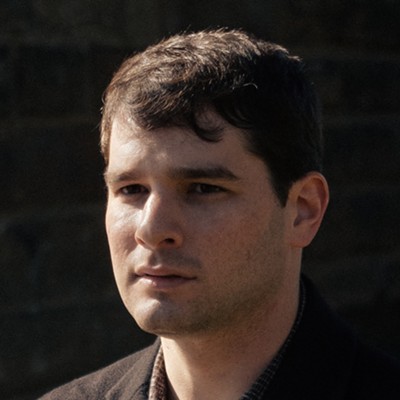Where would Miami be without water? The city is surrounded by it: ocean to the east, sprawling wetlands to the west, and in between a vast network of canals and rivers, including one that gives the city its name. Locals tend to take all of this blessed agua for granted. When was the last time you went to the beach, for instance?
But Claudio Marcotulli, a Venezuelan filmmaker, thinks of the water differently. In the Little River, passing through northern Miami, he’s found an unlikely muse. After years of living by and canoeing on the river, he made a movie about it.
“The first time that he took me on the river,” says Roxana Barba, the film’s producer, “when we would go under the bridges, he would show me how the light filters and the mood that’s created by all these shadows and faces.”
It was that mood that inspired Marcotulli to make his short film, Zenú, which will show on two local PBS stations this week. A surrealist work in English and Spanish, it tells the story of a musician struggling to write a song that will appease his manager. Venturing onto the river in a canoe, he encounters a shaman under an I-95 overpass. The mystic gives the artist an ancient clay flute, sending him farther on his mysterious journey.
During the film’s 23 minutes, viewers are treated to stunning sounds and visuals by a predominantly Latin American cast and crew. Three choreographers worked on each of the film’s dance scenes, while composer Jorge Gomez built the film’s score around recordings of the river water. Some of the film’s dreamlike scenes, shot by director of photography Pedro Guevara, were inspired by Paul Gauguin, Federico Fellini, and David Lynch (Marcotulli included an homage to 8½, another film about creative block), as well as the pre-Columbian culture that gives the film its name. Other visuals came from real experiences on the river, some of which happened during production.
“I was in the boat, and I actually saw these guys throwing a big, huge TV and some buckets and stuff into the river. I got so pissed!” Marcotulli says. “I called 911. I’m staring at the boat, I put the phone on speaker, and the whole thing got recorded.” The phone audio made it into the film, along with a re-creation of the incident with two actors.
To finance Zenú, the team was able to acquire a few grants but funded most of the film themselves. Because of the lack of film subsidies in Florida, they cut corners where they could. Marcotulli edited the film and took on the majority of postproduction.
“We’re still recovering financially,” Barba says.
“Credit cards helped quite a bit,” Marcotulli adds, half in jest.
Still, the labor of love is worth it if they can get the film seen by as many people as possible. They already have a head start: In addition receiving the PBS showing, Zenú will screen in the Short Film Corner at the Cannes Film Festival. They’re working on other festival appearances and speaking with Miami venues about public screenings, but they face obstacles such as submission fees and runtime issues. Barba says many festivals would rather program three shorter films than one the length of Zenú.
“I fought so much with Roxana,” Marcotulli says. “She wanted to cut it down so it could make more film festivals.”
If Marcotulli was able to endure the difficulties of making a film in Miami only to come out with a short film that might not be short enough, this must be some river.
Zenú will air Tuesday, March 13, at 7:30 p.m. on WPBT and Thursday, March 15, at 5:30 p.m. on WXEL. Some scenes have been edited for violence and nudity. Check your local listings for more information.
[
{
"name": "Air - MediumRectangle - Inline Content - Mobile Display Size",
"component": "19274298",
"insertPoint": "2",
"requiredCountToDisplay": "2"
},{
"name": "Editor Picks",
"component": "17482312",
"insertPoint": "4",
"requiredCountToDisplay": "1"
},{
"name": "Inline Links",
"component": "18711090",
"insertPoint": "8th",
"startingPoint": 8,
"requiredCountToDisplay": "7",
"maxInsertions": 25
},{
"name": "Air - MediumRectangle - Combo - Inline Content",
"component": "17482310",
"insertPoint": "8th",
"startingPoint": 8,
"requiredCountToDisplay": "7",
"maxInsertions": 25
},{
"name": "Inline Links",
"component": "18711090",
"insertPoint": "8th",
"startingPoint": 12,
"requiredCountToDisplay": "11",
"maxInsertions": 25
},{
"name": "Air - Leaderboard Tower - Combo - Inline Content",
"component": "17482313",
"insertPoint": "8th",
"startingPoint": 12,
"requiredCountToDisplay": "11",
"maxInsertions": 25
}
]













